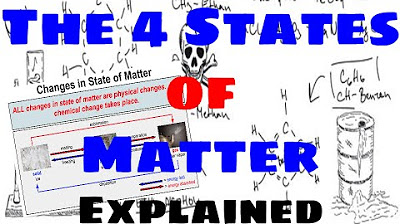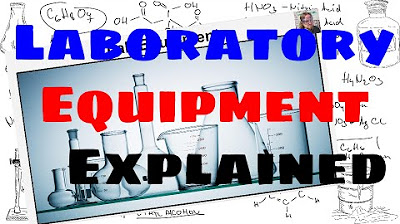Macbeth: One FULL Essay Plan Which Fits EVERY GCSE Question
Summary
TLDRIn this educational video, Mr. Everything English presents a comprehensive essay plan for 'Macbeth' that promises to fit any exam question. He dissects key quotes, applying techniques like a cilo, chremamorphism, and symbolism to analyze characters and themes. The plan includes Freudian analysis and explores the witches' power, Macbeth's transformation, and Lady Macbeth's influence. Viewers are encouraged to practice applying these strategies to past papers for exam success.
Takeaways
- 📚 The video provides an essay plan for 'Macbeth' that aims to fit every possible exam question.
- 🧐 The first quote from Act 2, Scene 1 is used to illustrate Macbeth's mind being manipulated, likening it to heat affecting plastic.
- 🤔 The 'oppressed brain' oxymoron is highlighted to show Macbeth's loss of control over his own thoughts.
- 📖 Freud's theory of the ID is connected to Macbeth's uncontrollable desire to kill the King.
- 🔮 The second quote from the witches in Act 4, Scene 1 uses 'juxtaposition' to show Macbeth's transformation into evil.
- 👻 The technique of 'chremamorphism' is introduced to explain the witches' dehumanization of Macbeth.
- 🗡️ The third quote discusses the witches as 'instruments of darkness' and their role in foreshadowing and betrayal.
- ⚔️ The metaphor of Macbeth 'hewing him to the chops' symbolizes his brutal and savage nature in battle.
- 👥 The video suggests using these quotes and techniques to analyze characters like Macbeth, Lady Macbeth, and the witches.
- 📝 The final advice is to practice applying these plans to past exam questions to prepare for the GCSE exam effectively.
Q & A
What is the main purpose of the video script?
-The main purpose of the video script is to provide an ultimate essay plan for students preparing for their exams, particularly for literature exams, by analyzing quotes and techniques from a play, presumably 'Macbeth', and showing how to apply them to various exam questions.
What are the four techniques mentioned in the script for analyzing quotes from the play?
-The four techniques mentioned are: 1) a cilo (a character's inner thoughts revealed out loud), 2) juxta position (contrasting ideas), 3) metaphor (comparing the witches to instruments of darkness), and 4) symbolism (the act of 'unseaming' as a representation of Macbeth's savagery).
What does the term 'a cilo' refer to in the context of the script?
-In the script, 'a cilo' refers to a technique where a character's inner thoughts are revealed out loud for the audience, which is used to analyze Macbeth's soliloquy in Act 2 Scene 1.
How does the script suggest using the quote 'It is a tale told by an idiot, full of sound and fury, signifying nothing.'?
-The script does not directly mention this quote, but it implies that quotes can be used to discuss the characters' motivations, the witches' power, the theme of kingship, and the transformation of Macbeth throughout the play.
What is the significance of the oxymoron 'oppressed brain' in the script?
-The oxymoron 'oppressed brain' signifies the idea that Macbeth feels his mind is being controlled and manipulated, likening it to plastic being molded by heat, which represents the witches' and Lady Macbeth's influence over him.
How does the script link the quote from Act 2 Scene 1 to Freud's theory of the ID?
-The script links the quote to Freud's theory of the ID by suggesting that Macbeth's actions are driven by his desires, which are represented by the ID, showing him as a 'slave' to his ambition to kill the King.
What is the role of 'chremamorphism' in the analysis of the witches in the script?
-Chremamorphism, the opposite of personification, is used to analyze the witches' statement 'Something Wicked This Way Comes', indicating that Macbeth has become so evil that even the witches, who are typically associated with evil, label him as wicked.
What is the 'instruments of Darkness' quote meant to foreshadow in the script?
-The 'instruments of Darkness' quote foreshadows the manipulative and deceptive nature of the witches, who tell truths only to betray Macbeth later in the play, leading to his downfall.
How does the script suggest using the quote 'He hath a tarquin's tyranny, which nothing becomes but calamity'?
-The script does not directly mention this specific quote, but it suggests using similar quotes to discuss themes of power, tyranny, and the consequences of Macbeth's actions.
What is the advice given in the script for preparing for the GCSE exam?
-The advice given is to learn all four essay plans, practice applying them to past papers, and during the exam, plan two paragraphs from the given extract and then select two of the pre-prepared plans to construct a comprehensive essay.
Outlines

This section is available to paid users only. Please upgrade to access this part.
Upgrade NowMindmap

This section is available to paid users only. Please upgrade to access this part.
Upgrade NowKeywords

This section is available to paid users only. Please upgrade to access this part.
Upgrade NowHighlights

This section is available to paid users only. Please upgrade to access this part.
Upgrade NowTranscripts

This section is available to paid users only. Please upgrade to access this part.
Upgrade NowBrowse More Related Video

The Four States of Matter - Explained

Lab Equipment - Explained

3. Gr 11 Life Sciences - Population Ecology - Theory 3 Mark Recapture Method

4. Gr 11 Life Sciences - Population Ecology - Worksheet 1

PENJASKES KELAS X - SOFTBALL

Introduction to Culture [AP Human Geography Review Unit 3 Topic 1]

Menentukan Mr ( massa molekul relatif )
5.0 / 5 (0 votes)